- Common Causes of Diarrhea
- 01. Bacterial Infections and Diarrhea
- 02. Viral Infections and Diarrhea
- 03. Food Intolerances
- 04. Medications and Supplements
- 05. Digestive Disorders and Chronic Diarrhea
- 06. Stress, Anxiety, and Diarrhea
- 07. Parasites
- Risk Factors for Diarrhea
- Medications and Medical Treatments
- Treatment Options for Diarrhea
- What Causes Chronic Diarrhea?
- How to Prevent Diarrhea
- Conclusion
- Frequently Asked Questions
Introduction
Causes Diarrhea is a common ailment that affects millions of people worldwide, significantly impacting their daily life. Characterized by the frequent passage of loose, watery stools, it can lead to dehydration and nutrient loss, making it a potentially serious condition. Recognizing the causes of diarrhea is crucial for effective management and prevention, ensuring individuals can maintain their health and well-being.
Definition and Types of Diarrhea
Diarrhea, also known as loose stools or watery bowel movements, is defined as having three or more liquid bowel movements per day. It is a symptom rather than a disease itself and is often your body’s way of dealing with disruptions in the gastrointestinal system. Diarrhea can be classified into two main types: acute and chronic. Acute diarrhea is a common condition that affects people of all ages. It is usually short-lived, lasting no more than a few days, and often resolves without treatment. Chronic diarrhea, on the other hand, persists for at least four weeks and can be a sign of a more serious health issue, such as inflammatory bowel disease or a chronic infection, necessitating medical attention. Causes Diarrhea
The remainder of the article will continue to explore various causes of diarrhea, such as infections, dietary choices, stress, and underlying medical conditions, providing readers with a thorough understanding of this condition. It would also offer practical advice on when to seek medical care and how to prevent the onset of diarrhea through lifestyle and dietary adjustments. By the end of the article, readers will have a comprehensive overview of diarrhea, empowering them with the knowledge to manage and prevent this disruptive and often uncomfortable condition.
Common Causes of Diarrhea
01. Bacterial Infections and Diarrhea

Diarrhea is a common symptom of various bacterial infections, including those caused by Salmonella and E. coli. These bacteria can disrupt the normal function of the digestive system, leading to an increased frequency of loose or watery stools. The mechanism behind this involves the bacteria producing toxins or invading the intestinal lining, causing inflammation and irritation that accelerates bowel movements.
The most frequent sources of these bacterial infections are contaminated food and water. Salmonella is often associated with raw or undercooked poultry, eggs, and meat, as well as unpasteurized milk products E. coli, on the other hand, is commonly linked to raw vegetables, undercooked ground beef, and contaminated water. These pathogens can survive on surfaces and are adept at spreading through the food supply chain, making it crucial to maintain high standards of food safety.
To prevent bacterial infections, it is essential to practice good hygiene, such as washing hands thoroughly with soap and water before handling food and after using the bathroom. Cooking meats to the proper temperature, avoiding cross-contamination in the kitchen, and choosing pasteurized dairy products can also reduce the risk of infection. In case of infection, staying hydrated is vital. Drinking plenty of fluids, including oral rehydration solutions, can help maintain electrolyte balance. Rest is equally important to allow the body to recover. Causes Diarrhea
02. Viral Infections and Diarrhea
Viral infections like norovirus and rotavirus are also leading causes of diarrhea, particularly in children and the elderly. These viruses infect the cells lining the intestines, leading to symptoms such as watery diarrhea, stomach cramps, nausea, and sometimes fever. The incubation period for these viruses can vary, but symptoms typically develop quickly and can last from a few days to a week. Causes Diarrhea
The contagious nature of viral infections means they can spread rapidly through direct contact with an infected person, contaminated surfaces, or ingestion of contaminated food and water. Norovirus, for example, can be transmitted by consuming food handled by someone with the virus or touching contaminated surfaces and then touching the mouth.
To alleviate the symptoms of viral diarrhea, it is recommended to consume electrolyte-rich fluids to prevent dehydration and follow a bland diet to ease the digestive system. Foods like bananas, rice, applesauce, and toast (the BRAT diet) are often suggested due to their ease of digestion and low fiber content. Over-the-counter medications may provide relief, but it’s important to consult a healthcare provider for proper diagnosis and treatment.
03. Food Intolerances

Food intolerances are a prevalent concern that can lead to uncomfortable digestive symptoms, including diarrhea. Unlike food allergies, which involve the immune system, food intolerances typically arise from the digestive system’s inability to handle certain foods. Two common examples are lactose intolerance and gluten sensitivity. Lactose intolerance occurs when the body lacks the enzyme lactase, necessary to digest lactose, a sugar found in dairy products1. Gluten sensitivity, on the other hand, involves an adverse reaction to gluten, a protein found in wheat, barley, and rye. Causes Diarrhea
The symptoms of food intolerances can vary widely but often include diarrhea, bloating, gas, abdominal pain, and nausea. Identifying and avoiding trigger foods is crucial because continuous consumption can lead to chronic symptoms and affect one’s quality of life. For instance, someone with lactose intolerance may experience diarrhea after consuming milk or cheese, while someone with gluten sensitivity might have similar symptoms after eating pasta or bread.
Managing food intolerances primarily involves dietary adjustments. Avoiding trigger foods is the most straightforward approach, but it requires careful reading of food labels and awareness of hidden sources of intolerant substances. For lactose intolerance, lactase enzyme supplements or lactose-free dairy products can be helpful. Gluten sensitivity may require a completely gluten-free diet. Consulting with a healthcare professional or a dietitian can provide personalized strategies and alternative options to ensure nutritional needs are met while avoiding triggers.
04. Medications and Supplements
Medications and supplements are essential for managing various health conditions, but they can sometimes have unintended side effects, such as diarrhea. This gastrointestinal upset can be a direct effect of the active ingredients or a result of changes in the gut flora. Common culprits include antibiotics, which can disrupt the balance of beneficial bacteria in the gut, and laxatives, which are designed to loosen stools and can sometimes lead to diarrhea if overused.
Other medications that may lead to diarrhea include nonsteroidal anti-inflammatory drugs (NSAIDs), certain antidepressants, and metformin, a medication for diabetes. Supplements such as high doses of vitamin C, magnesium, and fish oil have also been associated with diarrhea. Causes Diarrhea
If you suspect that your medication or supplement is causing diarrhea, it is essential to consult with your healthcare provider. Do not stop or alter your medication without professional advice, as this could affect the treatment of your underlying condition. Your healthcare provider can assess your symptoms, possibly adjust your medication, or suggest ways to manage the side effects. In some cases, they may recommend probiotics to restore gut flora balance or other supportive treatments to alleviate symptoms while continuing the necessary medication. Causes Diarrhea
05. Digestive Disorders and Chronic Diarrhea
Chronic diarrhea is a common symptom that can significantly impact the quality of life. It is often a manifestation of underlying digestive disorders such as Irritable Bowel Syndrome (IBS) and Inflammatory Bowel Disease (IBD). IBS is characterized by a combination of symptoms including abdominal pain, bloating, and altered bowel habits, whereas IBD, which includes conditions like Crohn’s disease and ulcerative colitis, is marked by chronic inflammation of the gastrointestinal tract. These disorders disrupt the normal absorption and secretion processes in the gut, leading to frequent, loose, and watery stools associated with diarrhea. Causes DiarrheaCauses Diarrhea
The exact cause of IBS and IBD remains unclear, but they are believed to result from a combination of genetic, environmental, and immune factors. The chronic nature of these conditions means that individuals may experience periods of remission interspersed with flare-ups of symptoms, significantly affecting their digestive system and overall well-being.
For those experiencing symptoms suggestive of IBS or IBD, it is crucial to seek medical advice for a proper diagnosis. A healthcare provider can offer a range of treatments tailored to the individual’s specific condition, which may include dietary changes, medication, and in some cases, surgery. Early intervention and management are key to improving outcomes and maintaining a good quality of life. Causes Diarrhea
06. Stress, Anxiety, and Diarrhea
The connection between stress, anxiety, and diarrhea is well-established, with the gut-brain axis playing a pivotal role in this relationship. The gut-brain axis is a bidirectional communication network that links the emotional and cognitive centers of the brain with peripheral intestinal functions. During periods of stress or anxiety, the body’s fight-or-flight response can lead to an increase in gut motility, resulting in diarrhea. Causes Diarrhea
Stress and anxiety can trigger the release of hormones and neurotransmitters that act on the gut, speeding up the transit of contents through the intestines and leading to diarrhea. This response is part of the body’s natural defense mechanism, preparing the organism to either face the stressor or flee from it. However, when stress is chronic, this response can lead to ongoing issues with diarrhea. Causes Diarrhea
To manage stress-related diarrhea, it is important to employ stress management techniques. Regular exercise, meditation, and therapy have been shown to alleviate symptoms by reducing stress levels and improving gut health. Additionally, relaxation techniques such as deep breathing exercises, visualization, and muscle relaxation can help calm the mind and may prevent further episodes of diarrhea. By addressing both the physical and psychological aspects of stress, individuals can improve their digestive health and overall well-being. Causes Diarrhea
In conclusion, chronic diarrhea can be a symptom of underlying digestive disorders like IBS and IBD, and it is also influenced by psychological factors such as stress and anxiety. Understanding the causes and connections between these factors is essential for effective management and treatment. Individuals experiencing chronic diarrhea should consult with healthcare professionals to determine the best course of action for their specific situation.
07. Parasites
Parasites are a significant health concern worldwide, and among them, Giardia and Cryptosporidium are notorious for causing diarrheal diseases. These microscopic invaders can wreak havoc in the human digestive system, leading to a condition commonly known as traveler’s diarrhea. Understanding the role of these parasites in causing diarrhea is crucial for both prevention and treatment. Causes Diarrhea
Giardia, a single-celled parasite, is responsible for a condition known as giardiasis. It is often contracted through contaminated water or food and can cause symptoms such as watery diarrhea, greasy stools, fatigue, and abdominal cramps. The parasite attaches itself to the lining of the small intestine and interferes with the body’s ability to absorb fats and carbohydrates, leading to malnutrition and weight loss in severe cases. Treatment typically involves anti-parasitic medications like Metronidazole or Tinidazole, which can clear the infection within a few weeks.
Cryptosporidium, on the other hand, is another protozoan that causes cryptosporidiosis. This parasite also spreads through contaminated water or food, or via person-to-person contact. Symptoms can range from stomach cramps and dehydration to severe diarrhea, which can be particularly dangerous for children and immunocompromised individuals. While the infection often resolves on its own, antidiarrheal agents like Nitazoxanide may be prescribed to alleviate symptoms.
Both Giardia and Cryptosporidium are highly resistant to chlorine, which makes them a persistent threat in swimming pools and public water systems. They are encased in hard shells called cysts, allowing them to survive outside the host for extended periods. Once ingested, these cysts release the active form of the parasite, which begins the cycle of infection.
Prevention is the best defense against these parasites. This includes drinking boiled or filtered water, avoiding raw or undercooked food, and practicing good hygiene, especially in areas where these parasites are common. For travelers, being aware of the risks and taking appropriate precautions can significantly reduce the chances of contracting these infections.
Giardia and Cryptosporidium are significant contributors to the global burden of diarrheal diseases. Their ability to spread through various routes and resist common disinfectants poses a challenge to public health. However, with proper preventive measures and effective treatment options, the impact of these parasites can be mitigated. As research continues to evolve, there is hope for more effective interventions to control and prevent the spread of these parasitic infections.
Risk Factors for Diarrhea
The risk of developing diarrhea can be influenced by several factors Poor hygiene practices, such as inadequate handwashing, significantly increase the risk of transmitting diarrhea-causing pathogens. Causes Diarrhea
Traveling to regions with limited sanitation facilities exposes individuals to a variety of pathogens that can cause traveler’s diarrhea. Causes Diarrhea
Age and health status also affect susceptibility Young children, older adults, and those with weakened immune systems are at a higher risk of developing diarrhea due to their less robust defenses against infections.
Medications and Medical Treatments
When it comes to managing health conditions, medications and medical treatments are indispensable. However, they often come with a range of side effects, one of the most common being diarrhea. This gastrointestinal response can be induced by a variety of medications, including antibiotics, which are known to disrupt the balance of gut flora, leading to loose stools. Chemotherapy, while a critical treatment for cancer, also has a significant impact on gut health. It can damage the rapidly dividing cells of the digestive tract, resulting in diarrhea. It’s crucial for patients to have open discussions with healthcare providers about the potential side effects of any treatment to ensure they are fully informed and can manage any adverse effects proactively. Causes Diarrhea
Treatment Options for Diarrhea
The treatment of diarrhea typically begins with over-the-counter medications designed to alleviate symptoms and restore normal function. In cases where diarrhea is caused by bacterial infections, antibiotics may be prescribed, although their use should be carefully considered due to the potential for further disrupting gut flora. Alongside medication, adequate rest and fluid replacement are essential. Oral rehydration solutions are recommended to prevent dehydration and replenish lost electrolytes. It’s important to consult with a healthcare provider to determine the most appropriate treatment based on the underlying cause of diarrhea. Causes Diarrhea
What Causes Chronic Diarrhea?
Chronic diarrhea, a debilitating condition, is characterized by the persistence of loose, watery stools for more than four weeks. It can significantly impact the quality of life, leading to dehydration and nutrient deficiencies. Recognizing the possible reasons is essential for efficient handling and remedy.
Inflammatory Bowel Disease (IBD): IBD, including Crohn’s disease and ulcerative colitis, is a significant contributor to chronic diarrhea. These conditions cause inflammation of the digestive tract, leading to frequent, urgent bowel movements. The chronic inflammation can damage the intestinal lining, impairing its ability to absorb nutrients and water, resulting in diarrhea.
Malabsorption Disorders: Conditions like celiac disease or pancreatic insufficiency disrupt the body’s ability to absorb nutrients properly. Celiac disease triggers an immune response to gluten, damaging the small intestine’s lining, while pancreatic insufficiency results from the pancreas failing to produce enough digestive enzymes. Both can lead to unabsorbed nutrients passing through the digestive system, causing diarrhea. Causes Diarrhea
Chronic Infections: Persistent infections such as Giardia or Clostridium difficile can lead to ongoing diarrhea. These infections irritate the gut and disrupt the normal balance of gut flora, prolonging symptoms even after the initial infection has been treated. Causes Diarrhea
Medications: Long-term use of certain medications, including antibiotics, antacids containing magnesium, and chemotherapy drugs, can result in chronic diarrhea. These medications can alter gut flora or irritate the digestive tract, leading to diarrhea.
How to Prevent Diarrhea
Preventing diarrhea involves a combination of good hygiene practices, a balanced diet, and lifestyle adjustments:
- Good Hand Hygiene: Regular handwashing with soap and water is one of the most effective ways to prevent the spread of infections that can cause diarrhea.
- Healthy Diet and Exercise: A diet rich in fiber, fruits, and vegetables, along with regular physical activity, can help maintain a healthy digestive system.
- Hydration and Trigger Foods: Staying hydrated is essential, especially if diarrhea occurs. It’s also important to identify and avoid foods and drinks that trigger symptoms, such as dairy products, fatty foods, or caffeine.
Conclusion
The blog post discussed seven potential reasons for diarrhea, including IBD, malabsorption disorders, chronic infections, and the impact of certain medications. Identifying the underlying cause is vital for effective relief. If you experience persistent or severe diarrhea, it’s important to consult a healthcare professional for a proper diagnosis and treatment plan. Remember, managing diarrhea is not just about symptom control; it’s about improving your overall health and well-being.
Frequently Asked Questions
01. What is the main cause of diarrhea?
The main causes of diarrhea can include infections by viruses (like rotavirus and norovirus), bacteria (such as E.coli, Salmonella), and parasites (like Giardia), as well as digestive disorders like Crohn’s disease and irritable bowel syndrome.
02. What are 5 symptoms of diarrhea?
Common symptoms include:
- Belly cramps or pain
- Bloating
- Nausea
- Vomiting
- Fever
03. How do you treat Type 7 stool?
Type 7 stool on the Bristol Stool Chart is entirely liquid with no solid pieces. Treatment includes staying hydrated, avoiding certain foods, and possibly taking anti-diarrheal medications. Causes Diarrhea
04. What causes diarrhea Class 7?
For students in Class 7, diarrhea can be caused by the same factors as in adults: infections, food allergies or intolerances, and medications. Causes Diarrhea
05. What is diarrhoea Class 7 short answer?
Diarrhoea is a condition where a person frequently passes watery stools. It may be caused by infection, indigestion, or food poisoning.
06. What foods stop diarrhea?
Foods that may help include white rice, toast, bananas, applesauce, and foods with probiotics like yogurt. It’s also recommended to eat bland, non-fatty, and low-fiber foods.
07. Can I drink milk if I have diarrhea?
It’s generally not advisable to drink regular cow’s milk during diarrhea due to its lactose content, which may not be tolerated well. Lactose-free or plant-based milks are preferred.
08. Is curd good for diarrhea?
Curd is beneficial for treating diarrhea as it contains probiotics that help restore balance in the intestinal barrier and aid digestion.
09. What can I drink to stop diarrhea fast?
To stop diarrhea quickly, it’s important to stay hydrated. Clear liquids like water, electrolyte drinks, and soup broth are recommended. Avoid caffeinated, sugary drinks, and alcohol.
*Image credits- freepik*
Important Notice:
The information provided on “health life ai” is intended for informational purposes only. While we have made efforts to ensure the accuracy and authenticity of the information presented, we cannot guarantee its absolute correctness or completeness. Before applying any of the strategies or tips, please consult a professional medical adviser.
**Good Health & Batter Life**















